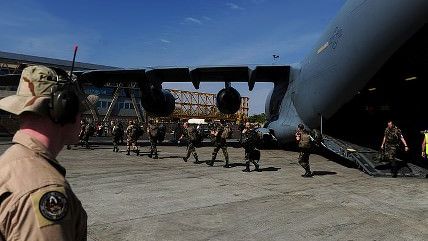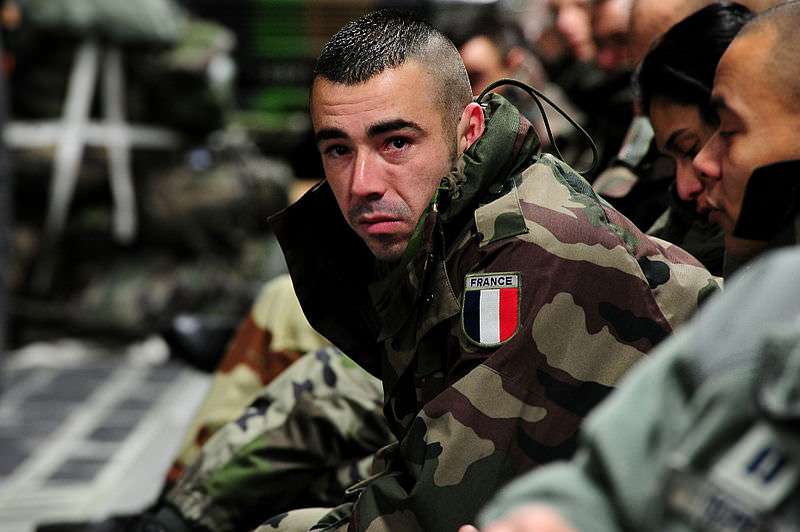Threat of Islamic Militant Comeback in Mali Threatening French Withdrawal Plan


The French may not be leaving Mali as quickly as they would like.
French President Francois Hollande had said that he wants the number of French troops in Mali to be cut to 1,000 by December from the roughly 4,000 troops that are there now. United Nations Secretary-General Ban Ki-moon has said that a UN peacekeeping force could be made up of African soldiers that are already assisting Malian and French forces.
However, despite plans for a UN peacekeeping force recent attacks by Islamic militants and the political situation in Mali mean that the French troop reduction could be delayed.
From Reuters:
Last weekend Islamist militants launched their second attack on Timbuktu in a fortnight, shortly after French President Francois Hollande insisted the elections must take place as scheduled and unveiled the plan to slash troop numbers.
Launched in January, the French-led offensive quickly succeeded in pushing a mix of Islamists out of their northern strongholds and remote mountain bases, hitting the local leadership of the al Qaeda-linked groups.
But new clashes have followed a handful of suicide attacks and raids on towns won back from the rebels, underscoring the task of securing the country as France prepares to hand over to the Malian army and a 7,000-strong regional African force.
The nightmare scenario is that of a repeat of the Afghan war, where Taliban insurgents have prevented a full pull-out of NATO-led troops after a 13-year conflict that has cost tens of thousands of lives.
While it is understandable that the French would like to avoid their own Afghan war there is the possibility that Islamic militants will return to northern Mali after the number of French soldiers is reduced. It is easy to see why those living in northern Mali who experienced the rule of Islamic militants would not be reassured by a mere 1,000 French troops, a U.N. peacekeeping force, and a disorganized Malian military that is facing accusations of human rights violations.
As well as the possibility of Islamic militants returning there is also the ongoing issue of slavery to worry about, with some Tuaregs who are seeking independence in northern Mali but who have distanced themselves from Islamic militants continuing the practice of slavery. Despite the French-led intervention 250,000 people still live in conditions of slavery in Mali.
From The Guardian:
The recent French intervention in Mali does seem to be paying some security dividends with most of the Islamist fighters driven out of the main urban areas. But many slaves and ex-slaves say they still do not feel safe, since a new Tuareg group, the Islamic Movement for Azawad, is in control of the remote town of Kidal.
The unfortunate reality for the French government is that if they wish to leave Mali in a safer, more secure, and politically stable situation they may have to stay longer than they initially anticipated, which will almost certainly have effects on the government's popularity in France.



Show Comments (33)